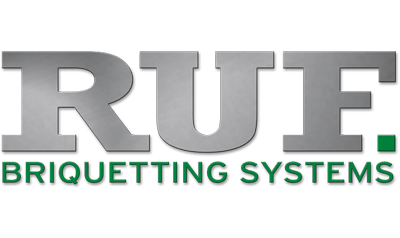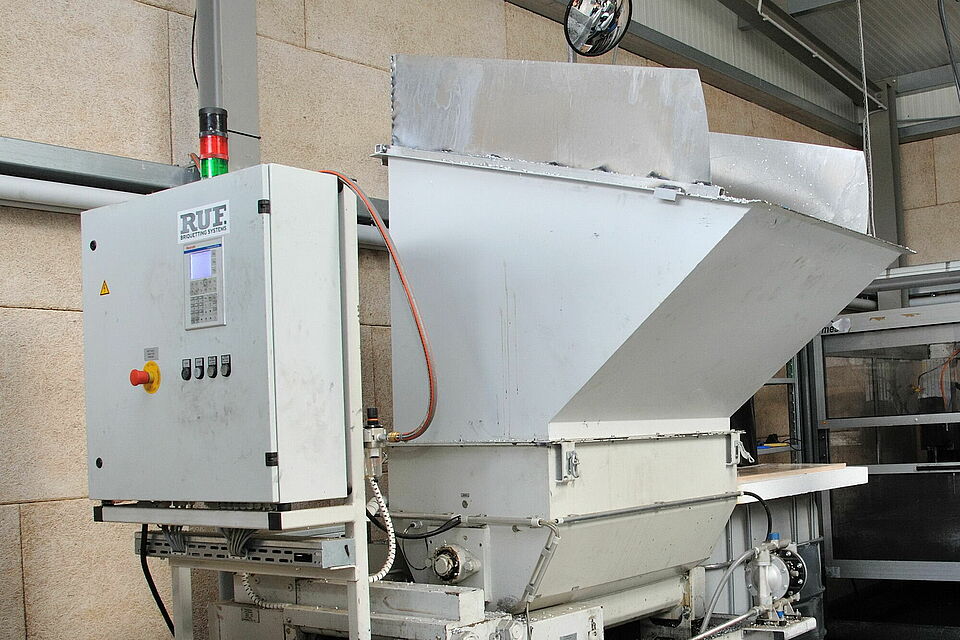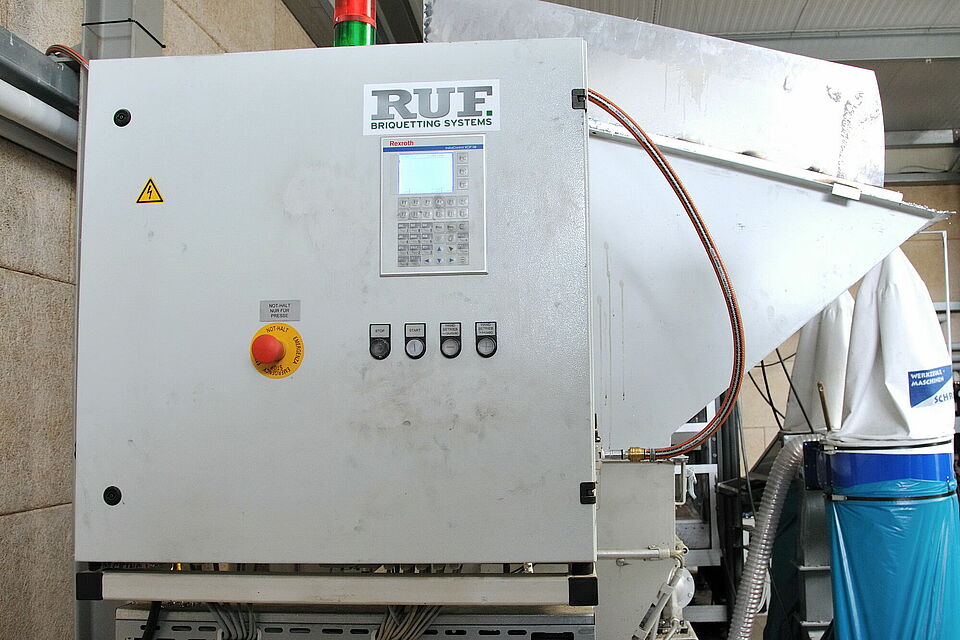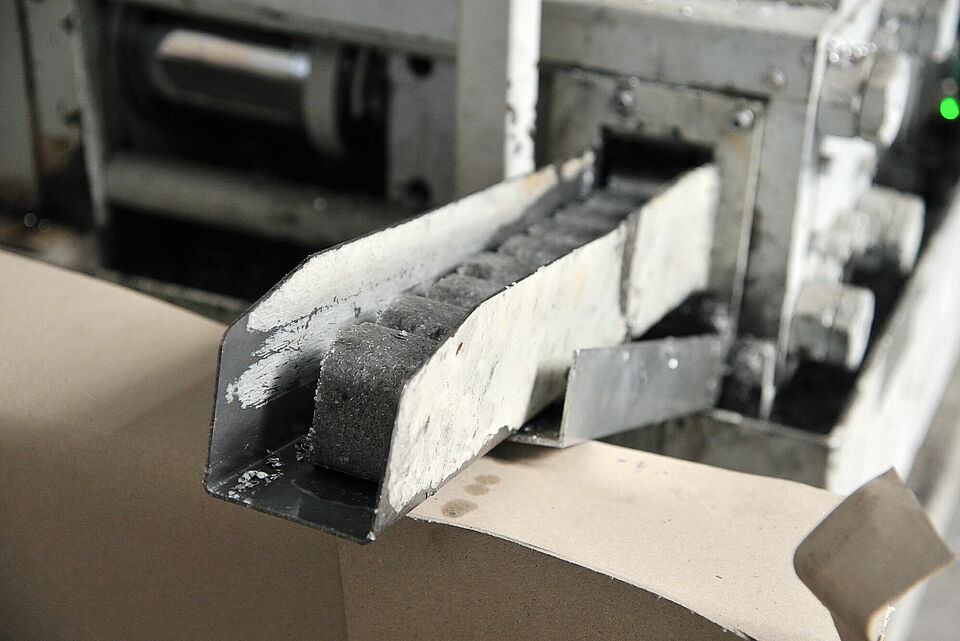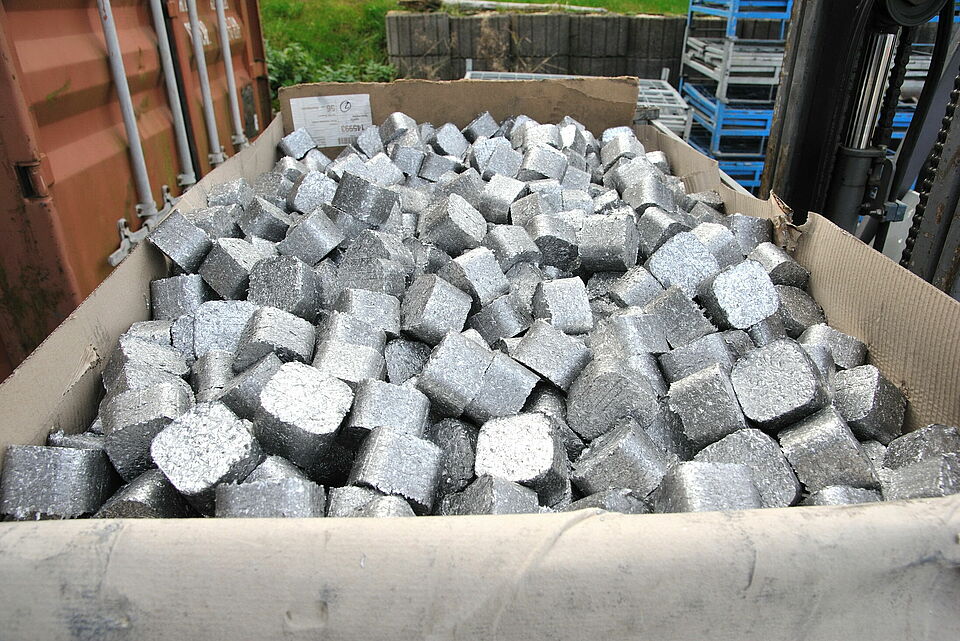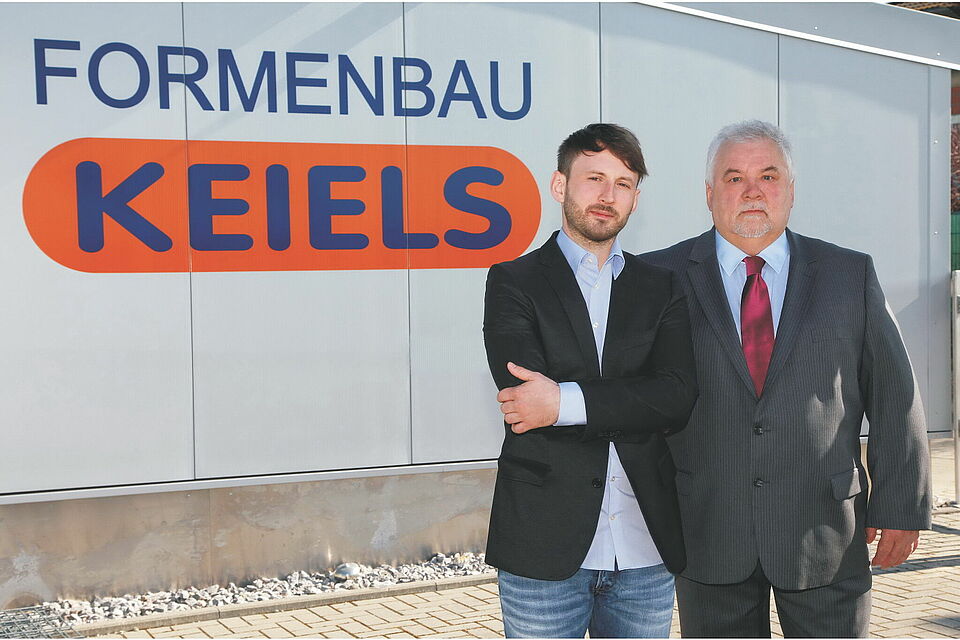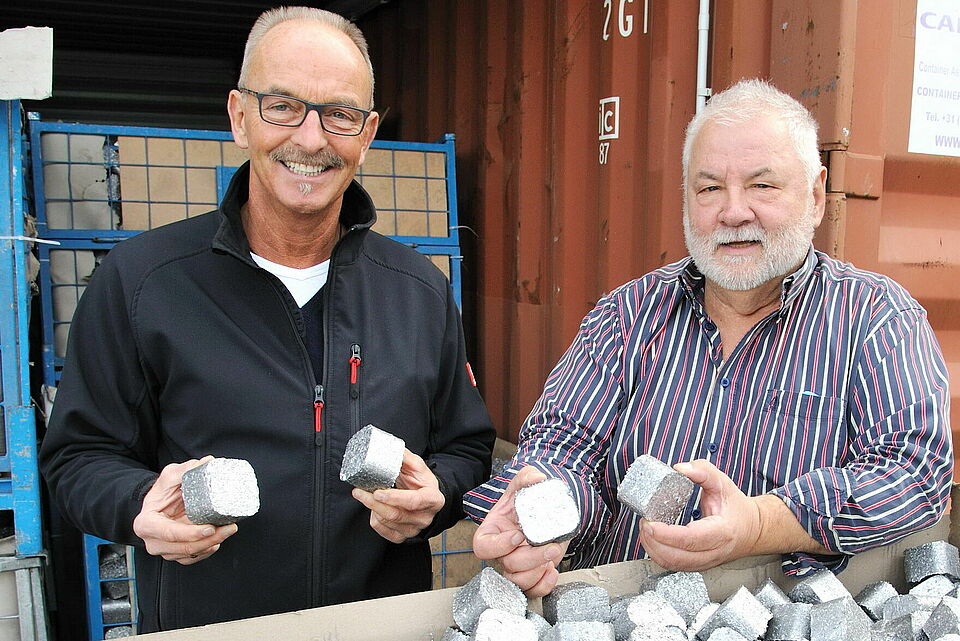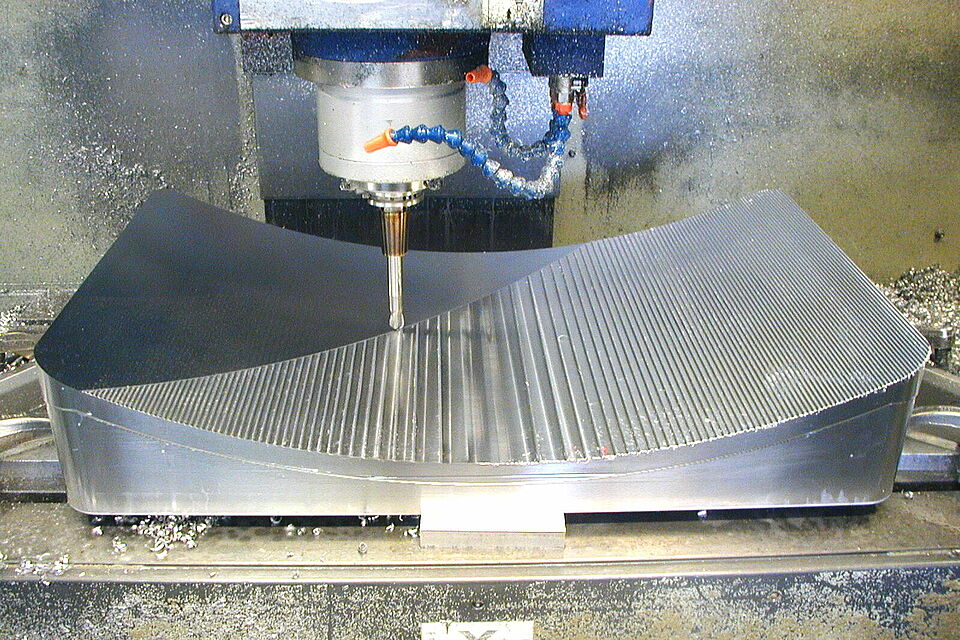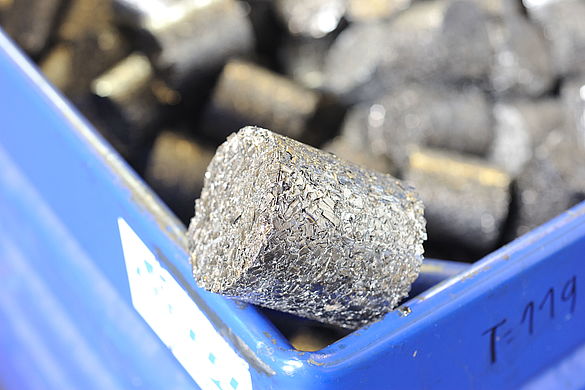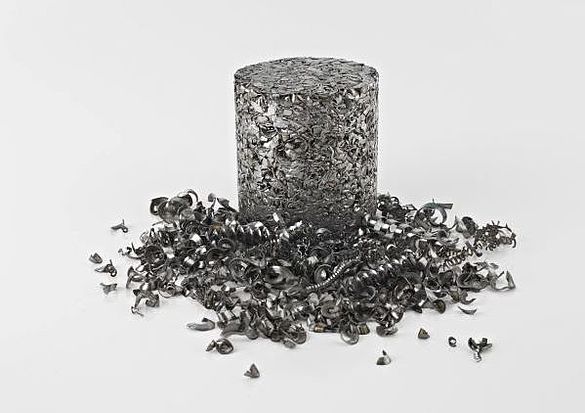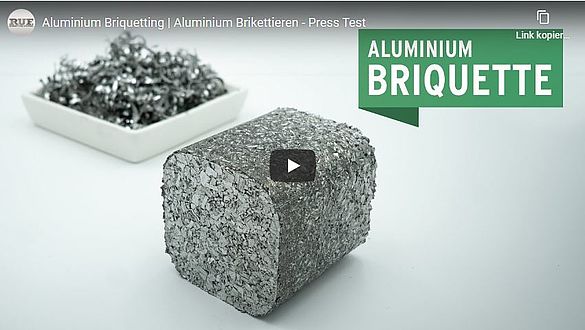Keiels mould makers have increased their economic efficiency with a RUF briquetting press
With the introduction of a RUF briquetting press Keiels Formenbau GmbH have simplified their working processes substantially, as well as massively reducing their costs. The briquetting system can press 50 kg per hour of Aluminium chips, which are produced during milling, into solid briquettes. When compared to the sale of loose, wet chips the company has doubled its revenues through selling Aluminium briquettes. In real terms this is a return on investment in about a year.
Peter and Alexander Keiels are mould/tool makers and lead their family business with all their heart and soul. The father and son led company, Keiels Formenbau GmbH, comprises of 18 employees who produce tools for processing particle foams. Quality, reliability, flexibility and adherence to deadline dates are top priorities in this company’s scale of values. These are the main reasons why they have continually been able to expand their production in Attenhausen in the Federal State of Rhineland-Palatinate. "Practically every car manufacturer in Germany receives components supplied in transport packages which have been produced with our tools" is how Peter Keiels introduces the most important user industry.
Light, stable and manufactured to fit exactly the components being transported, these containers are manufactured from EPP, which is expanded polypropylene. EPP is to some extent the heavier and more stable brother of EPS (expanded polystyrene), which is better known under the name Styrofoam. The fine art of manufacturing tools to form foam, was developed from the ground up by Peter Keiels, who established the company as a side-line enterprise in a garage in 1990. Peter Keiels is so enthused about the possibilities offered by EPP as a material that he has developed EPP products himself and brought them onto the market, for example a tool carrier for norm tools.
The foam forming tools are exclusively milled from whole pieces of aluminium alloy AlMg4.5Mn at Keiels. Starting point is semi-finished aluminium. Almost two thirds of the aluminium block is left over, as large volume and wet chips, because residues of the emulsion used as cooling lubricant is still present.
This waste product of production, or moreso how to handle it, was a long-term thorn in the side for the two Keiels. Just the storage of the wet chips demanded a huge amount of space, thanks to their low bulk density, as well as dirtying the floors of the production area. In addition the removal of the chips cost valuable working time, which could be put to better use in the making of tools. When the collection containers were pretty full, then an appointment had to be made for collection, and that several times a month. In order to load the chips from the containers, an employee had to be deployed, which took him away from his normal tasks and on to forklift operating duties. All in all the internal logistics procedures for dealing with chips were very laborious – working hours that were deemed unproductive.
Keiels Formenbau GmbH …
… is an owner managed company with 20 employees. The company, which was founded in 1990 by Peter Keiels in community of Attenhausen in Rheinland Palantine, is specialised in tool making with which products can be manufactured from expanded polypropylene. Keiels' customers principally use the tools for the production of transport packaging or small load carriers, which are used by automobile suppliers. Keiels Formenbau also brings their knowledge of the EPP material into the design of some of their own products. The company is a member of the EPP-Forum, which among other tasks, carries out research into implementation possibilities and production processes for EPP.
Revenues for aluminium waste doubled
"If we still had to deal with it the old way, and taking the current levels of production, then the chips would have to be collected twice a week. Thanks to the briquetting press, the scrap metal dealer now comes four times a year and each time he takes 15 tonnes of aluminium briquettes with him" explains Alexander Keiels. When it comes to single origin briquettes, which are transported directly to an aluminium smelter, the toolmakers receive about 1000 euros per tonne. This is roughly double what they received previously for loose chips. Additionally a lot of transportation trips are saved emphasises Keiels with his environmental cap on.
The increase in value has two causes: firstly the pressing ensures that the chips are practically completely free of clinging residues of cooling lubricant. When the chips leave the milling machine their residual moisture levels are at around 20%. After compression into briquettes, the residual moisture is largely removed.
As the scrap metal dealer now only has to come four times a year, the briquettes are stored, weather protected, for this interim phase. During this time the residual moisture decreases even further. Analyses on the part of the scrap metal dealer have shown that the briquettes at the time of collection show residual moisture values of a mere 2 %. Therefore a markedly higher price is achieved. The briquettes with that low residual moisture can be melted without problems. New recycling possibilities are existent for aluminium smelters, which are just not possible with loose chips.
The toolmakers had been aware of these benefits for a longer time. However their first researches into briquetting presses about ten years ago led to the conclusion that the total amount of chips produced at that time was not sufficient to economically justify operating such a system. This all changed however when it became clear about three years ago that this amount had increased to about 20 tonnes of aluminium chips per annum. Peter and Alexander Keiels went back to their researches, collected offers from several manufacturers and decided on a used RUF integration press RAP 4/2400/60x60 with a throughput of about 50 kg/hour. The numbers stand for the following: 4 kW electrical power consumption, a specific pressing force of 2,400 kg/cm2 and a briquette cross-section of 60 x 60 mm. This means the press that the Keiels operate is at the lower end of RUFs' scope of performance which goes as far as 90 kW and, depending on the material, throughputs of up to five tonnes per hour.
The press works mainly automatically
Why did they decide on RUF? "We collected several offers and RUF not only offered a good price performance ratio but also left the best impression. RUF is, after all, known for their leading edge quality,” explains Peter Keiels. The decision can be looked back on as a correct one from today’s perspective also. "The system runs and runs and has been running without a problem since Autumn 2014 when we commissioned it" reports the company owner.
The related labour effort during daily business is minimal. When one of the collecting containers, which are located on each milling machine, is filled, an employee drives it with the forklift to the briquetting press and empties it into the collecting hopper. A sensor installed here activates the pressing procedure. When the reserve of chips in the hopper goes under a certain level, the press stops automatically and switches to stand-by. RUF presses at other companies, which are connected to automatic collection and conveyance systems work round the clock without human interaction. Solely the collection containers, which are full with briquettes, have to be exchanged for empty containers manually.
The press returned its investment after about a year
The amortisation period was a lot shorter than expected at Keiels. The company owners had cautiously predicted a volume of chips in the order of 20 tonnes per year and therefore foresaw an amortisation period of about three years. However as the volume of chips increased massively the system paid for itself much quicker. The 60 tonnes, which were briquetted in 2016, meant that the amortisation period was just about one year. This calculation however only takes into account the increased revenues achieved for the aluminium waste.
What could also be added here are future savings regarding cooling lubricant: The residues of the 5 % Emulsion with Mineral oil are pressed out of the chips during briquetting, captured and pumped automatically into a collecting vessel. Using a mobile filtering system, Keiels prepares this emulsion for further usage and guide it back into the machine circulation. Savings on emulsion purchases adds to the extra revenues from the briquettes. More than 1000 companies which use pure oil as cooling lubricant are already regaining the lubricants as a result of using RUF presses.

